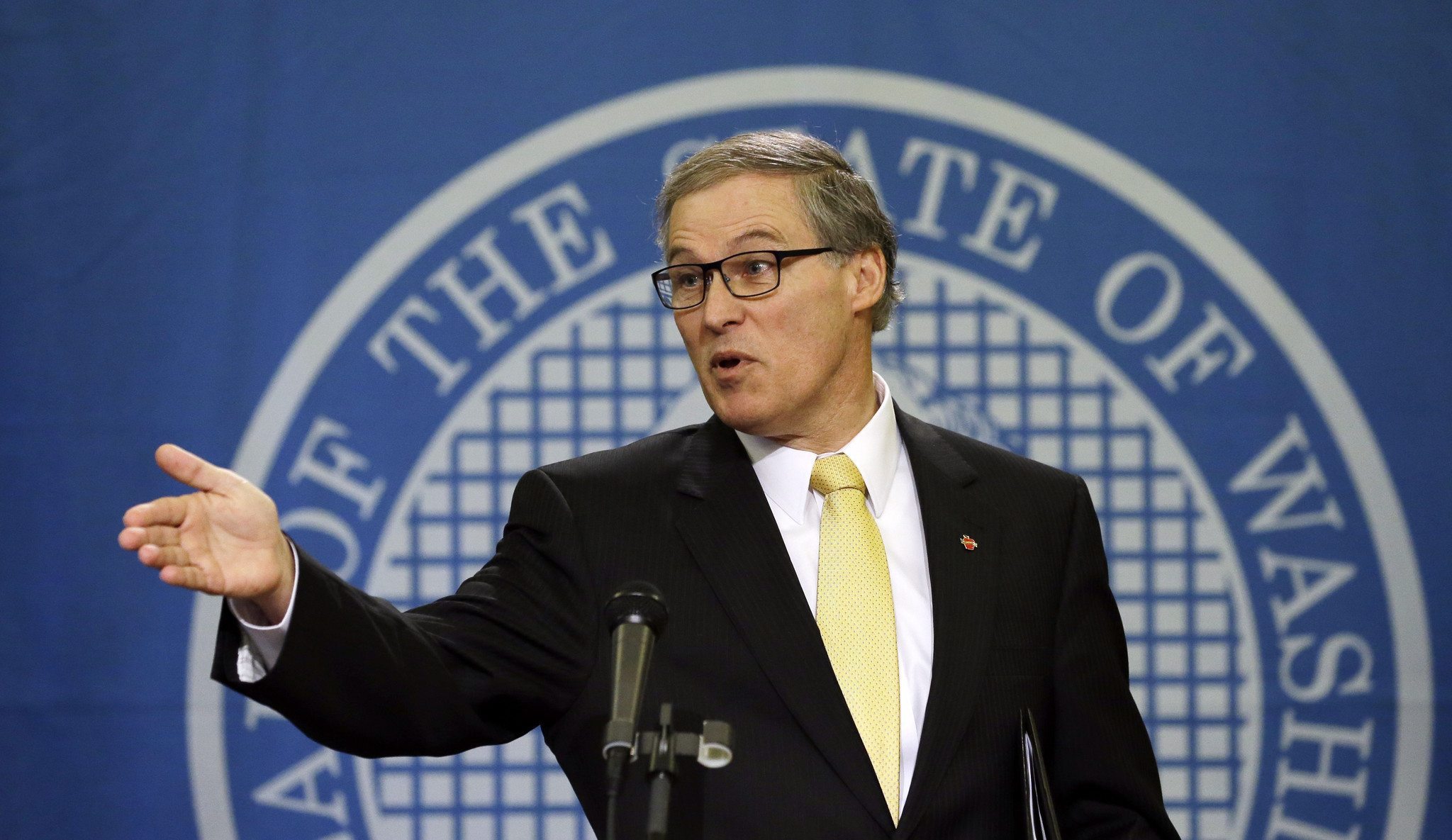State Senate transportation leaders introduced a compromise package three years in the making. It is a $15 billion, 16-year bi-partisan agreement that includes key compromises made by both Republicans and Democrats. Yet, despite swallowing some difficult pills in the form of Democrat backed plans, it’s Republicans who must deal with the left’s discontent toward their policies of reform and accountability.
Democrats piled on the criticism since the package’s introduction, calling it a “poison pill.” Jay Inslee is one Democrat expressing his discontent of the bi-partisan transportation package. Particularly, our green governor is displeased with the package’s safeguard against the possibility of him imposing a fuel mandate on our state via executive order.
GOP lawmakers made it clear during negotiations for the need of a safeguard against a fuel mandate if they were to agree to Democrats’ insistence on an 11.7-cent gas tax funding mechanism. Inslee could not be able to pile his scheme, and the resulting $1 plus per gallon of fuel, on Washington’s working families.
So, if Inslee moves forward with an executive order, the legislation will redirect all transit funding to roads. Inslee will not be able to bypass the Legislature without also delivering a blow to transit funding. It’s simple and it’s fair, but Democrats call it a “poison pill.” Fortunately, it’s a pill that survived Democrat opposition during last week’s transportation committee vote.
But, why is Inslee so adamantly opposed to the bi-partisan package that Washington State needs to move forward on transportation? As Seattle Times guest columnist Richard S. Davis points out, Inslee has already “set the regulatory process in motion, with public hearings on the proposed [fuel mandate] rule scheduled this month.” He insists that a fuel mandate will not lead to added costs and is needed in order to “ meet goals for greenhouse-gas reduction set by the 2008 Legislature to reduce emissions to 1990 levels by 2020.” Davis calls foul. He writes,
The 2008 legislation is classic long-fuse politics, confusing aspiration for accomplishment. Lawmakers set goals years in the future, hold a festive bill-signing ceremony and light the fuse. When the spark hits the powder a decade later, it’s someone else’s problem. That’s what we’re dealing with now..
The fuel standard is neither the only nor the best strategy to achieve the state’s goals. Proposals to spur conservation and renewable energy have received bipartisan support this year…
Competing claims about the economic consequences abound. There are reports suggesting the proposed fuel standard would boost gas prices from pennies a gallon to more than a dollar. Some research identifies compliance problems because of a shortage of low-carbon fuels. Other analysts say, no problem. But it’s safe to believe that when things can go wrong, they will. Believing in regulators’ best-case scenarios is a prescription for disappointment, if not worse.
Inslee has a choice to make between pursuing his fuel mandate and allowing the “threat of an executive order to linger over the [transportation] debate” or participating in a bi-partisan effort to pass a transportation proposal critical to our state by eliminating the possibility of a fuel mandate. Unfortunately, thus far, Inslee has only managed to inject distrust in negotiations.




